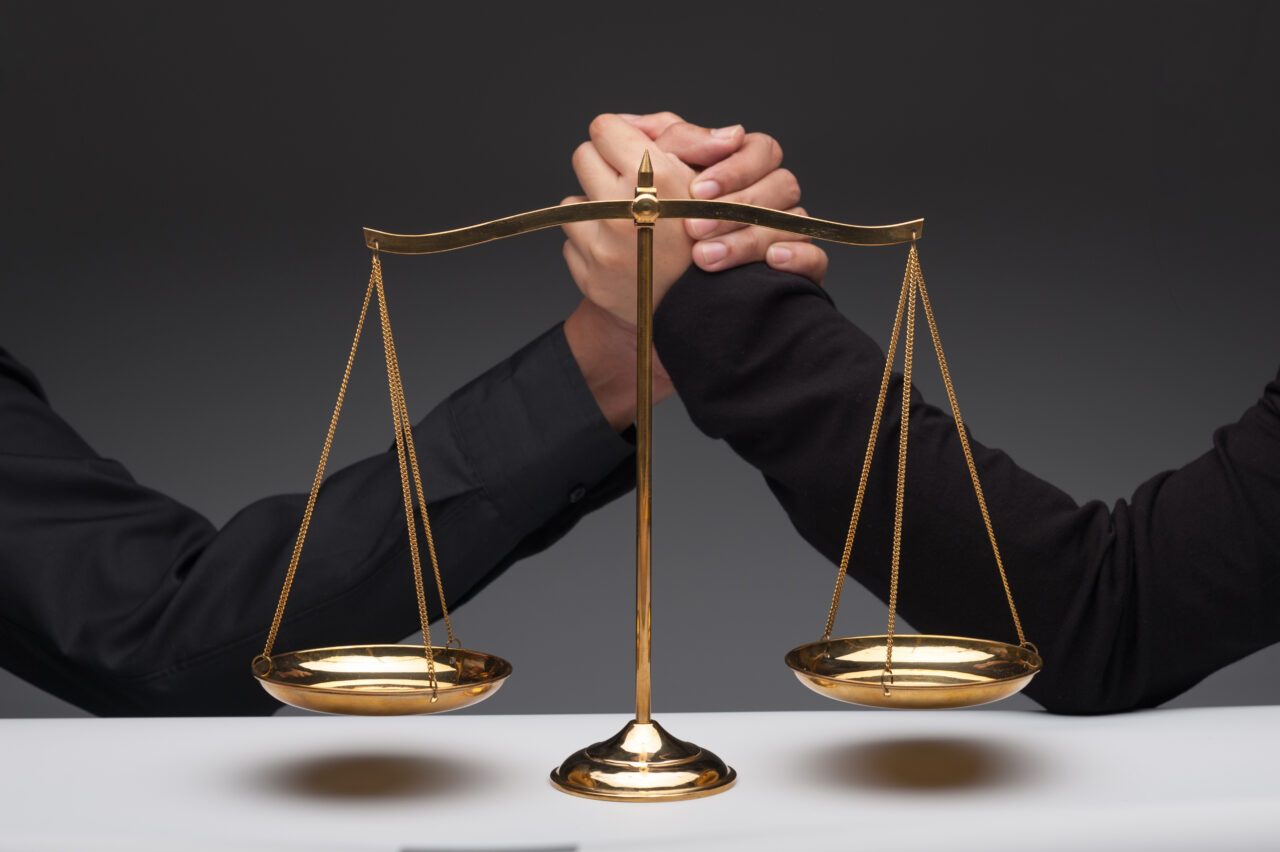Ethics Opinion 1274: Conflicts of Interest, Former Clients, Government Lawyers
9.20.2024

Opinion 1274 (09/12/2024)
Topic: Conflicts of interest, former clients, government lawyers
Digest: A lawyer employed in the counsel’s office of a state agency would not have a conflict in representing the agency in an enforcement action against a client the lawyer had formerly represented in private practice unless the lawyer would normally be expected to have acquired confidential information in the course of the lawyer’s prior representation that was material to the enforcement action. If there were a conflict, the conflict would be imputed to the counsel’s office, and screening would not suffice to avoid imputation, absent consent of the former client.
Rules: Rules 1.6(a), 1.9(b)-(c), 1.10(a) & (e), 1.11(d)
FACTS:
- The inquirer is employed in the counsel’s office of a state agency that licenses certain categories of health care providers. Prior to beginning employment at the agency in 2022, the inquirer was in private practice in a law firm that represented a client that is licensed by the agency to provide certain health care services. The same client also provides other services that are not licensed by the agency. The law firm’s representation of the client was primarily conducted by another lawyer, but the inquirer was brought in for two of the client’s matters: a discrimination complaint by an employee in a facility that is not licensed by the state agency; and a coverage dispute with an insurer pertaining to a claim of abuse by an employee in one of the client’s facilities that is also not licensed by the state agency.
- Recently, the inquirer learned that his agency-employer is considering bringing an enforcement action against the inquirer’s former client over a range of deficiencies in the client’s licensed facilities, including staffing deficiencies, failure to report incidents, renovations conducted without the required inspection by the agency, and improper treatment practices. The inquirer asks whether he may work on the matter or instead must be screened from it.
QUESTIONS:
- Does a lawyer currently employed by a state agency have a conflict of interest in working on an enforcement action against a client that the lawyer previously represented in private practice?
- If the lawyer does have a conflict, is the conflict imputed to the other lawyers in the office of the state agency in which the lawyer works?
OPINION:
- This inquiry is governed by Rule 1.9 of the New York Rules of Professional Conduct (the “Rules”), and in particular by Rule 1.9(b), which provides:
- The term “firm,” which appears in Rule 1.9(b), is defined in Rule 1.0(h) to include “lawyers employed in a . . . government law office, or the legal department of a corporation or other organization”). Notably, Rule 1.9(c), which is also referred to in the quoted excerpt from paragraph (b), in most circumstances bars a lawyer who formerly represented a client, or whose law firm formerly represented a client, from using confidential information of the client protected by Rule 1.6 adverse to the former client or from revealing such information. Thus, we need to turn to Rule 1.6 to understand Rule 1.9.
- Rule 1.6(a) prohibits a lawyer from knowingly revealing “confidential information” or using it to the disadvantage of the client or for the advantage of the lawyer, unless the client gives informed consent. Rule 1.6 defines the term “confidential information” as follows:
- Under Rule 1.9(b), the inquirer would have a conflict only if he or his prior firm had represented the client in a matter that was substantially related to the potential enforcement action and the lawyer had acquired confidential information that was material to the new matter. Comment [3] to Rule 1.9 explains that “[m]atters are substantially related for purposes of this Rule if they involve the same transaction or legal dispute or if, under the circumstances, a reasonable lawyer would conclude that there is otherwise a substantial risk that confidential factual information that would normally have been obtained in the prior representation would materially advance the client’s position in the subsequent matter.” Thus, whether or not the inquirer actually obtained material confidential information during the prior representation, a conflict arises under Rule 1.9 if he would normally have obtained such information during the prior representation, because in that instance the prior and current matters would be “substantially related.”
- Comment [3] notes, as an example of a substantially related matter, that “a lawyer who has represented a businessperson and learned extensive private financial information about that person may not then represent that person’s spouse in seeking a divorce.” By contrast, Comment [3] says that “a lawyer who has previously represented a client in securing environmental permits to build a shopping center . . . would not be precluded, on the grounds of substantial relationship, from defending a tenant of the completed shopping center in resisting eviction for nonpayment of rent.” Further, “[i]n the case of an organizational client, general knowledge of the client’s policies and practices ordinarily will not preclude a subsequent representation. On the other hand, knowledge of specific facts gained in a prior representation that are relevant to the matter in question ordinarily will preclude such representation.” (Emphasis added.) Comment [3] also notes that “[i]nformation acquired in a prior representation may have been rendered obsolete by the passage of time.”
- In this case, the inquirer will need to determine whether confidential information that a lawyer would “normally” have acquired in the course of handling a discrimination complaint or an insurance coverage dispute of the kind that he handled – in each case in a facility that was not covered by the agency license at issue – would materially advance the agency’s position in the potential enforcement action against the former client. The inquirer would need to make the same determination with respect to any confidential information that he acquired about other matters handled by the firm even if he did not work on them (e.g., if he had been consulted about them, discussed them informally, or overheard other lawyers discussing them). The fact that the matters concerned different facilities than those that would be the subject of the enforcement action would be relevant but not necessarily dispositive. For example, a conflict would exist under Rule 1.9 if the inquirer learned facts touching on the challenged practices that were applicable to both the licensed and other facilities. The passage of time may also be relevant, so it is relevant when the challenged practices arose in relation to the time period addressed in the discrimination and coverage disputes, and whether information from that time period is still current.
- If the inquirer concludes that he has a conflict arising out the prior representation, he would be barred from representing the agency in the potential enforcement action unless he received the informed consent of the former client.
- If the inquirer has a conflict, then the conflict would be imputed to the other lawyers in the agency counsel’s office under Rule 1.10. Rule 1.10(a) provides:
Rule 1.10(d) provides that the imputed disqualification can be waived by the former client. Screening alone would not suffice to cure the imputed disqualification except as a condition of consent. N.Y. State 1186 ¶ 26 (2020) (“Firewalls and screens cannot prevent imputation of a conflict under Rule 1.10(a)” unless the Rules provide otherwise).
- Rules 1.9, and the imputation of Rule 1.9 conflicts under Rule 1.10, apply to current government lawyers as they do to lawyers in a private firm. Comment [9B] to Rule 1.11 states:
- We note that under the ABA Model Rules of Professional Conduct, upon which the New York Rules are in many respects based, imputation pursuant to Rule 1.10 does not apply to current government lawyers. ABA Model Rule 1.10(e) (“The disqualification of lawyers associated in a firm with former or current government lawyers is governed by Rule 1.11.”); ABA Model Rule 1.11, Cmt. [2] (“Because of the special problems raised by imputation within a government agency, paragraph (d) [of Rule 1.11, which addresses conflicts of a current government lawyer] does not impute the conflicts of a lawyer currently serving as an officer or employee of the government to other associate government officers or employees, although ordinarily it will be prudent to screen such lawyers.”).
- In 2008, when the New York State Bar Association proposed to the New York Courts that New York adopt what became the current New York Rules, the State Bar proposed that Rule 1.10 would not apply to government law offices. See New York State Bar Association, Proposed New York Rules of Professional Conduct, Rule 1.10(e) (“The disqualification of lawyers associated in a firm with former or current government lawyers is governed by Rule 1.11.”), Rule 1.11(d)(1) (“Except as law may otherwise expressly provide, a lawyer currently serving as a public officer or employee: (1) shall comply with Rules 1.7 and 1.9 but is not subject to Rule 1.10 . . . .”) & Rule 1.11(e) (providing for imputed disqualification in government law offices unless screening is put in place) (Feb. 1, 2008).[1] The Courts did not adopt those proposed provisions, and the State Bar revised the Comments to conform to the black letter text as adopted by the Courts. In revising the Comments, the State Bar promulgated Comment [9B], which, as quoted above, states that conflicts under Rule 1.9 are imputed to lawyers in a government law office as they would be in a private law office.[2]
- We recognize that the imputation of former-client conflicts to government law offices may present serious difficulties for government agencies, and that agencies will often find it impossible to obtain consent from the particular lawyer’s former client. A separate conflict rule in Rule 1.11(d)(1) that bars a government lawyer who has participated in a matter personally and substantially while in private practice from participating in the same matter at the government agency, but conflicts arising under subparagraph (d)(1) are not imputed to the government law office, which contains a “rule of necessity” that states that the disqualification is overridden where “under applicable law no one is, or by lawful delegation may be, authorized to act in the lawyer’s stead in the matter.” See Rule 1.11, Cmts. [9A] & [9B] (describing non-imputation and the rule of necessity); N.Y. State 1029 ¶¶ 5-10, 19-26 (2014) (outlining differences between Rule 1.9 conflicts and Rule 1.11(d)(1) conflicts). Neither Rule 1.9 nor Rule 1.10 contains a similar rule of necessity. Whether such a rule of necessity overriding Rule 1.9 conflicts and imputation of those conflicts can be derived from sources outside the Rules of Professional Conduct is a question of law on which we do not opine.
CONCLUSION:
- A lawyer employed in the counsel’s office of a state agency would not have a conflict representing the agency in an enforcement action against a client the lawyer had formerly represented in private practice unless the lawyer would normally be expected to have acquired confidential information in the course of the lawyer’s prior representation that was material to the enforcement action. If there were a conflict, the conflict would be imputed to the counsel’s office, and screening would not suffice to avoid imputation, absent consent of the former client.
(17-24)
1 Available at NYSBA | Professional Standards for Attorneys (archive.org).
2 The courts in New York adopt only the Rules, not the comments to the Rules. The New York State Bar Association separately publishes the comments to provide guidance for attorneys in complying with the Rules. As stated in the Preamble to the Rules, “The Comments are intended as guides to interpretation, but the text of each Rule is authoritative.” Preamble [13].






